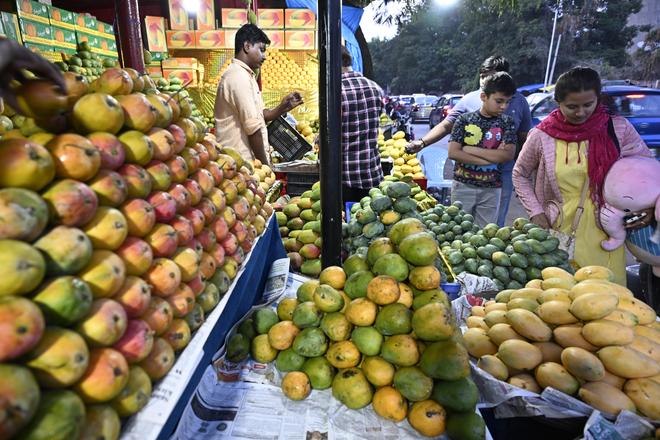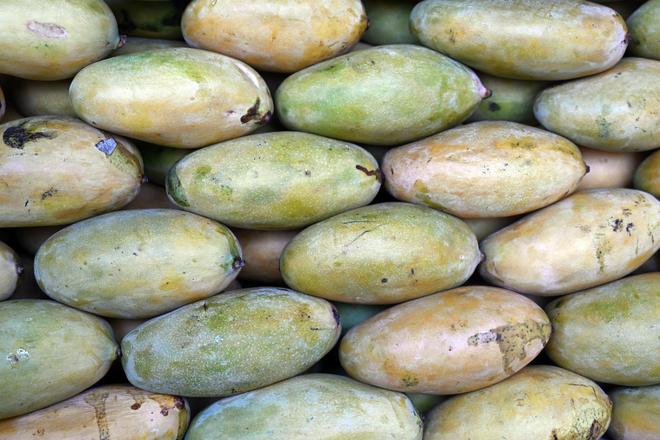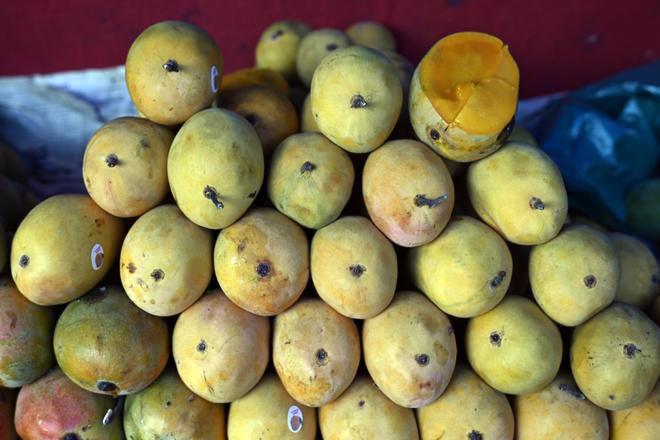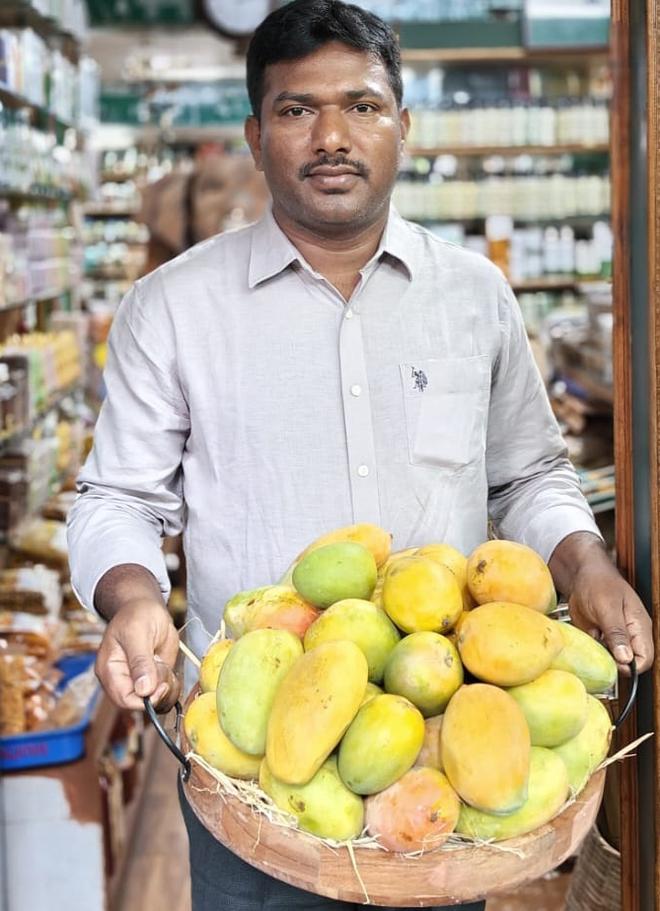
There is one more addition to the list of Bengaluru’s woes this year apart from terrible traffic, dismal water levels and unprecedented heat — a low mango yield. “Let’s admit it, 2024 is an off year for mangoes,” says CG Nagaraju, Managing Director, Karnataka State Mango Development and Marketing Corporartion (KSMDMC). “The yield is dismally low, with only 30% of a year’s regular production estimated to reach the market.”
Nagaraju explains that under normal circumstances, Karnataka has a yield of 12 to 15 lakh metric tonnes of mangoes between mid-April and the first week of August, with early, mid and late seasonal varieties flooding the market.
“This season, even the early arrivals such as raspuri and Badami are not as tasty as they used to be. There are many reasons for this. It’s not just the lack of rain in April, but also improper weather patterns leading to physiological imbalances in the fruit. These factors have altered the growth and taste in each variety of mango. The correct flow of every season is imperative for the fruit to develop — erroneous patterns in temperature, wind, mist, morning dew and rain have altered the equilibrium of the fruit as well as its mass, size and taste.”

This year, even the mid-seasonal varieties have been affected and they may reach the market only a few weeks later, as there was a bit of rain only last week, says Nagaraju.
Karnataka’s production of mangoes covers 16 districts — Kolar, Chikkaballapur, Tumkur, Hassan, Bengaluru rural and urban, Belagavi, Dharwad, Koppala, Haveri, Chitradurga, Chikkamangaluru, Bidar, Raichur, Kalaburagi and Ramanagara — with 60% coming from the southern regions of Kolar, Chikkaballapura, Ramanagara, Bengaluru rural and urban.
“While Tumkur has 13 varieties, Ramanagara, one of the largest mango growing districts, is seeing the opening up of trade and the Mango Corporation has just begun online marketing on its portal (www.karsirimangoes.karnataka.gov.in) for the supply of mangoes directly to consumers through the post office.”
The mango harvesting has begun, albeit on a smaller scale, says Nagaraju. “While it is time to get the native Alphonso or Badami from Dharwad, Belgaum, Haveri, Gadag and Koppal, benishan (Banganapalli), Neelam, Mallika and totapuri will come from Kolar and Chikkaballapura in June. There is a possibility we can cover the deficit partially with totapuri, as it is a high-yielding, hardy crop compared to other delicate varieties.”

New in the market
One of the two new mangoes varieties one can see in Karnataka markets this year, is the all-season katimon, says Nagaraju. “Local farmers are cultivating it. Coming under the umbrella of naadu maavu (indigenous mangoes) katimon was given to nurseries and farmers for cultivation a few years ago. As they have a quicker yield time with a smaller canopy, the crop has a unique sweetness and a satisfactory yield. It will be harvested soon for local consumption.”
The other variety is a coastal Karnataka special, kari ishad (from the Ankola region in Uttara Kannada) that has been accorded the GI Tag as it is considered one of the finest varieties for its aroma and sweetness. One of the oldest varieties in the country, the high amount of pulp it yields saw the fruit being canned from the time of the British.
Karnataka’s bounty
Karnataka has nearly 1,000 varieties of wild mangoes and nearly 150 of them are of the pickling variety, says AN Yellappa Reddy, well-known author, tree expert, and former Administrator of Forests. Apart from the Mango Development Corporation, the Indian Institute of Horticulture Research (IIHR) has also preserved and conserved more than 1,000 varieties in commercial, non-commercial, wild and semi-wild varieties of mango.
Karnataka is the third largest producer of mangoes after Uttar Pradesh and Maharashtra with varieties grown across 1.6 lakh hectares. According to the Horticulture Department of Karnataka, “The oldest native surviving varieties in the State include thopu, kohri, kajri, gundu maavu and jeerige maavu.”

Every area has a specialty such as the Dakshina Kannada region that produces mundappa, Kumta, Honnavara and Bhatkal in Uttara Kannada give kari ishad, baalemaavu is from Dharwad, sakkareguthi is available all over the State, Dakshina Kannada has appe maavu, and the nekkare variety is available in Kodagu, Hassan and Sakleshpur.
To order mangoes online log on to www.karsirimangoes.karnataka.gov.in, call 91 -7411168063 or mail karsirimangoes@gmail.com.







